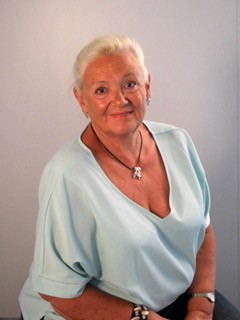Ingrid Eyers FHEA PhD MSc RGN
Independent Expert: Policy and Practice in Care of Older People
Email: This email address is being protected from spambots. You need JavaScript enabled to view it.
Simply put, by the time I need more support in my activities of daily living, I sincerely hope the FrailSafe concept is well established. Having been involved in the care of older people for almost 40 years as a practitioner and latterly an academic, I see the use of technology to be a key component of health and social care delivery in the future.
Currently I am involved in the care of my mother and mother-in-law who are both in their early 90’ies. Over the last years we have observed and participated in their lives as they made the transition from being active, fiercely independent ladies to now facing the reality of their gradually increasing levels of frailty and consequential dependency on the support of others.
Their individual co-morbidities have very little in common but both continue to live on their own in their accustomed environment, surrounded by their own belongings, in two different European countries. The two ladies do grudgingly wear an alarm call bracelet which has been known not to be used “because I didn’t want to disturb anybody at night”. My mother especially would welcome the use of more technology were it available.
Within the professional world of health and social care providers, I am acutely aware that there is a fear of technology intruding into “their world”. My consistent argument that health and social care professionals need to be directly involved in future developments, to ensure they are ultimately introduced to product systems they can comfortably adapt to and are fully “fit for their purpose”, is not always welcome.
A much needed change process is taking place in the care sector and it is vital to acknowledge the important role technology plays in this process. A number of key issues need to be fully addressed in both policy and practice to ensure the fine balance between the requisite exchange of information amongst professionals and data protection, privacy and dignity of the individual older person is maintained.
The changes in family structures and demands on both men and women in the work place mean it can no longer be taken for granted that adult children are able to look after frail older parents, much as they may want to. It is also difficult for families to assess what help, support and guidance their parent(s) need and they can become over protective, often causing problems within families. FrailSafe can potentially ease that situation.
In coming years we can increasingly expect to encounter co-dependent couples who jointly appear to be coping well and their nearest and dearest can potentially fail to pick up gradually increasing frailty when they visit. The actual frailty of one partner is often not picked up on until an acute situation arises with the other partner and it can be difficult to monitor the progression of frailty.
With the effective use of technology which becomes an accepted part of everyday life, situations with the potential to cause concern can be eased for older people and their families as well as health and social care services. The increasing acceptance of technology in our everyday lives is noticeable daily in the High Street when you see people of all ages using smart phones; it can therefore be expected that in five to ten years technology currently being developed should be accepted.
The FrailSafe project is “all inclusive” providing a solid evidence base to inform future developments in health and social care across the EU. FrailSafe can theoretically be linked to the EU Funded “SUSTAIN” project with its focus on integrated care. Key to the successful acceptance and implementation of Frailsafe is going to be the integration of a team tasked to assess and meet the needs of frail older people.
The follow on knowledge transfer is the FrailSafe project’s next greatest challenge. The relevant information needs to be quickly and easily accessed and understood by older people and their families as much as by professionals. They are the ones who need to be requesting hi-tech modern services that respect and meet their individual needs.
However, the first step has to be that, across the EU, policy makers accept and financially support the implementation of such a programme. Once the funding aspect is clarified down to grass root level, the knowledge transfer focusing on the “end-user” can take place via social media and regional debates and informative “Road Shows”.
In 15 years’ time, when I might well be requiring such a service from the Social Care Serves in the rural community I live in, I hope they will be more integrated with the local Medical Services and not bat an eyelid when I put in a request for my husband and I to participate in a localised German version of FrailSafe.

